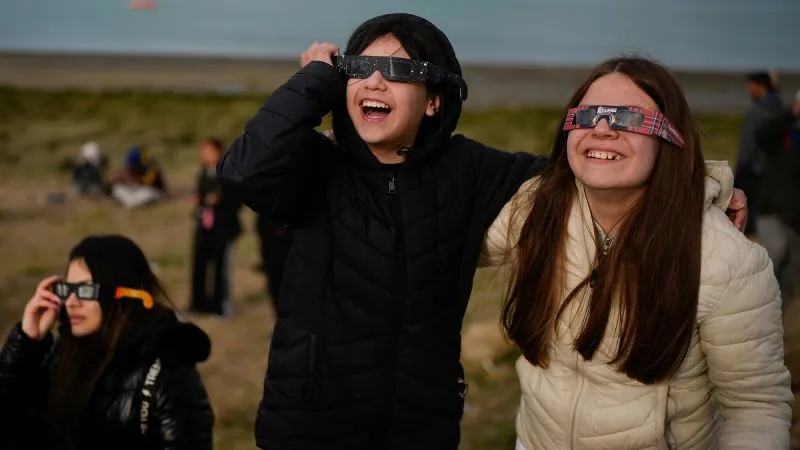
Don't Miss the Next Solar Eclipse: Key Dates and Viewing Tips You Need to Know!
2024-10-03
Author: Ken Lee
Get ready to mark your calendars, sky-gazers! If you were one of the lucky ones who witnessed the stunning “ring of fire” eclipse sweeping through South America this past week, you already know how mesmerizing these celestial events can be. But don’t fret if you're craving more astronomical wonders—there are several exciting solar eclipses on the horizon!
While we won't see another “ring of fire” until 2026, there are still numerous chance to enjoy the breathtaking phenomenon of partial solar eclipses. These occur when the moon passes between the Earth and the sun, but isn't directly aligned to completely block the sun's rays, resulting in a beautiful crescent shape.
Upcoming Solar Eclipses
Here's a look at the upcoming solar eclipses: 1. **March 29, 2025** - A partial solar eclipse will be beautifully visible across the northeastern United States and Canada, as well as reaching Greenland, Iceland, and parts of Europe and northwest Africa. 2. **September 21, 2025** - Another partial solar eclipse is set to occur, primarily visible in Oceania, including New Zealand, Fiji, and some areas of Australia, extending down to Antarctica. 3. **February 17, 2026** - Following this, an annular solar eclipse will grace the skies. While the best view will be from Antarctica, a partial glimpse will be available from southern Africa and South America. 4. **August 12, 2026** - Get ready for a total solar eclipse! This event is similar to the spectacle that captivated millions last April, where the moon completely covers the sun. This eclipse's path of totality will stretch across Greenland, Iceland, and Russia, as well as parts of Spain and Portugal. Residents of Europe, Africa, and North America will still have the opportunity to see a partial eclipse.
Safety First!
Remember, no matter what type of solar eclipse you’re excited for, viewing it safely is paramount. That means investing in certified eclipse glasses or a handheld solar viewer to protect your precious eyes from harmful solar rays. If you have access to a telescope, binoculars, or camera fitted with a special solar filter, that's a great option too! Just make sure you do not look through optical devices while wearing eclipse glasses, as this can lead to serious eye damage.
Future Total Solar Eclipses
For those of you planning your travels to catch more solar wonders, here are additional dates for extraordinary total solar eclipses you won’t want to miss: - **July 22, 2028:** Australia and New Zealand - **November 25, 2030:** Namibia, Botswana, South Africa, Lesotho, Australia - **March 20, 2034:** Nigeria, Cameroon, Chad, Sudan, Egypt, Saudi Arabia, Iran, Afghanistan, Pakistan, India, China - **September 2, 2035:** China, North Korea, South Korea, Japan - **July 13, 2037:** Australia and New Zealand - **December 26, 2038:** Australia and New Zealand - **April 30, 2041:** Angola, the Democratic Republic of Congo, Uganda, Kenya, Somalia - **April 20, 2042:** Malaysia, Indonesia, Brunei, the Philippines.
So, prepare your viewing gear and get ready for a celestial experience that will be etched in your memory. Stay tuned for those heavenly events—you won’t want to miss the magic!



 Brasil (PT)
Brasil (PT)
 Canada (EN)
Canada (EN)
 Chile (ES)
Chile (ES)
 España (ES)
España (ES)
 France (FR)
France (FR)
 Hong Kong (EN)
Hong Kong (EN)
 Italia (IT)
Italia (IT)
 日本 (JA)
日本 (JA)
 Magyarország (HU)
Magyarország (HU)
 Norge (NO)
Norge (NO)
 Polska (PL)
Polska (PL)
 Schweiz (DE)
Schweiz (DE)
 Singapore (EN)
Singapore (EN)
 Sverige (SV)
Sverige (SV)
 Suomi (FI)
Suomi (FI)
 Türkiye (TR)
Türkiye (TR)